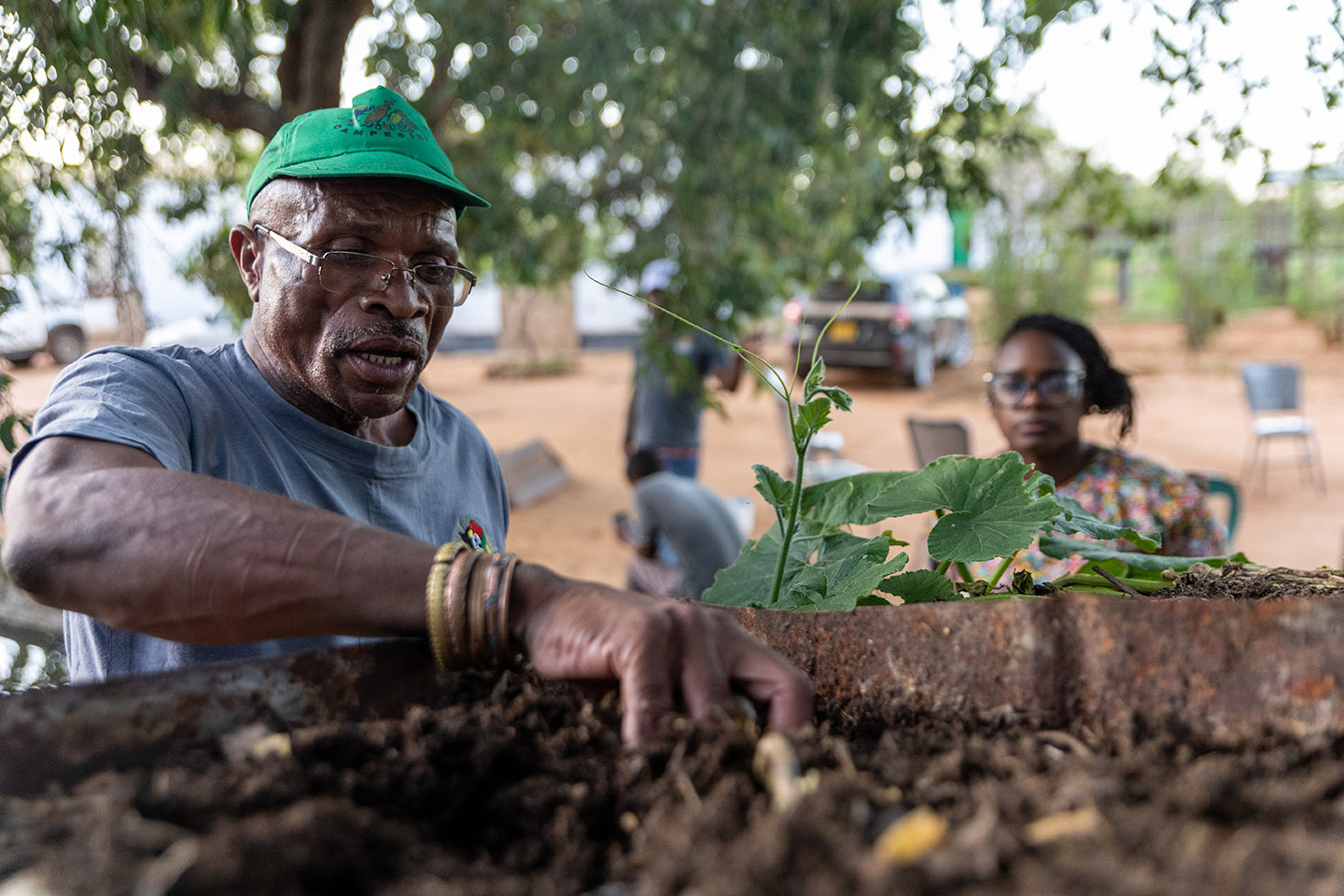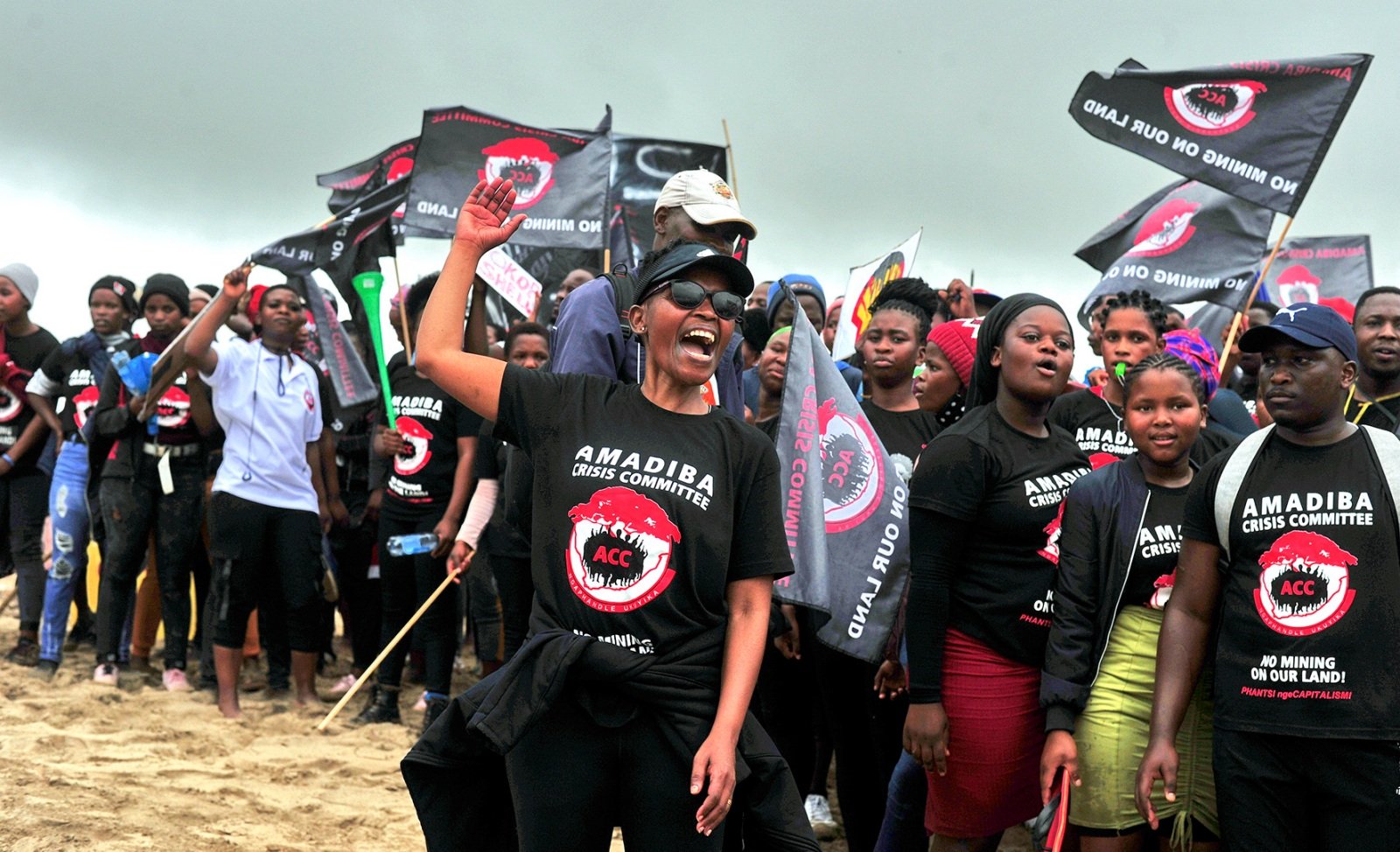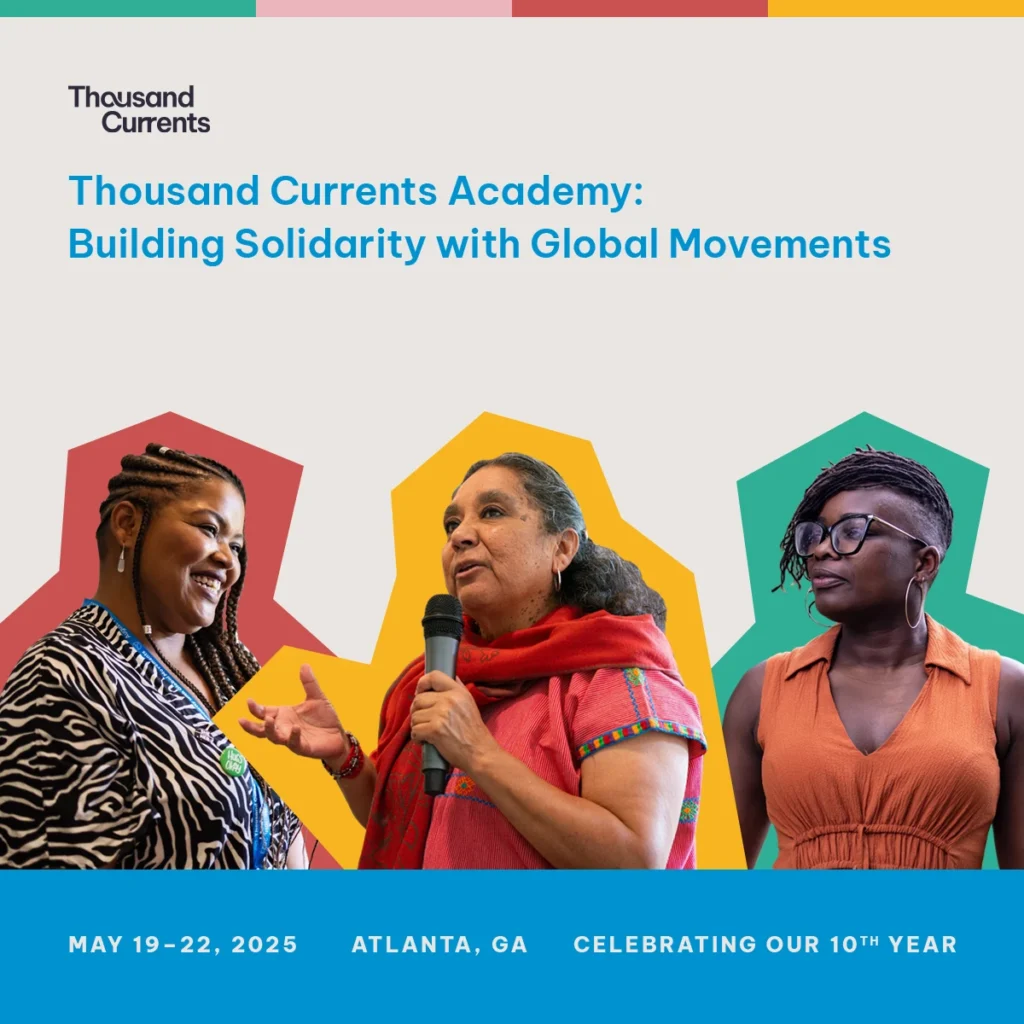Democratic Republic of Congo | Founded in 2013 | Thousand Currents Partner since 2024
Africa Resources Watch (AFREWATCH)
Monitoring corporate actors in service of Indigenous land and resource autonomy
Founded in 2013, AFREWATCH is a movement support group monitoring the activities of multinational corporations in the Democratic Republic of Congo, and advocating for the protection of community rights and the sustainable use of natural resources. AFREWATCH advocates for the protection of the rights of Indigenous communities to access and exercise autonomy over natural resources. It works to hold corporate and state actors accountable for the exploitation of natural resources in Africa. AFREWATCH advances grassroots alternatives to corporate extractive mining and protects the interests of artisanal miners.
The work of AFREWATCH is divided into three streams: human rights (community rights, environmental protection, rights of women and children); governance; and strategic litigation. AFREWATCH’s thematic areas of focus include artisanal mining, climate justice, energy transition, extractivism, human security, hydrocarbons and water. Its programs include monitoring environmental and social abuses by mining corporations, research, advocacy, publications, legal support, and popular education.
AFREWATCH’s primary tactic is advocacy and campaigns. It does this by advocating for the implementation of environmental impact assessments conducted by extractive corporations, in service of community-led natural resource management. AFREWATCH’s current campaigns include a Just Energy Transition, Campaign for the Formalization of the Artisanal Mining Sector, a Corporate Transparency Campaign, and a Campaign for the Protection of Arable Land.
AFREWATCH understands a just energy transition to be one where there is an end to the dependence on fossil fuels, and where Indigenous communities are in control of their own natural resources and renewable energy supply. It is one where natural resource exploitation by multinational corporations ends, the community owns its own natural resources, and artisanal mining is decriminalized.
Related Stories





